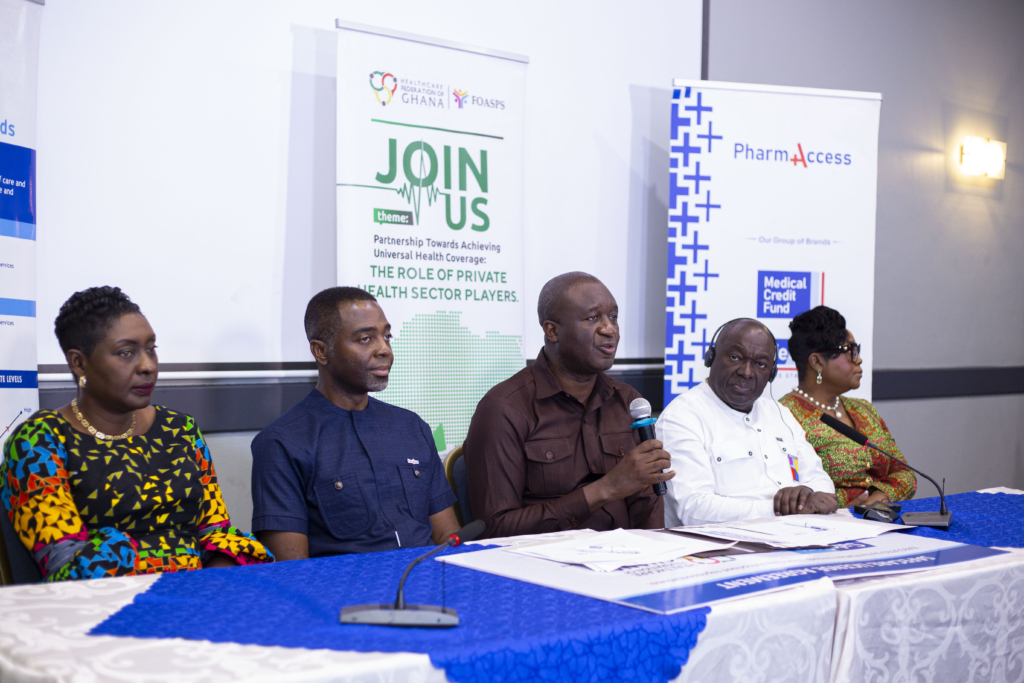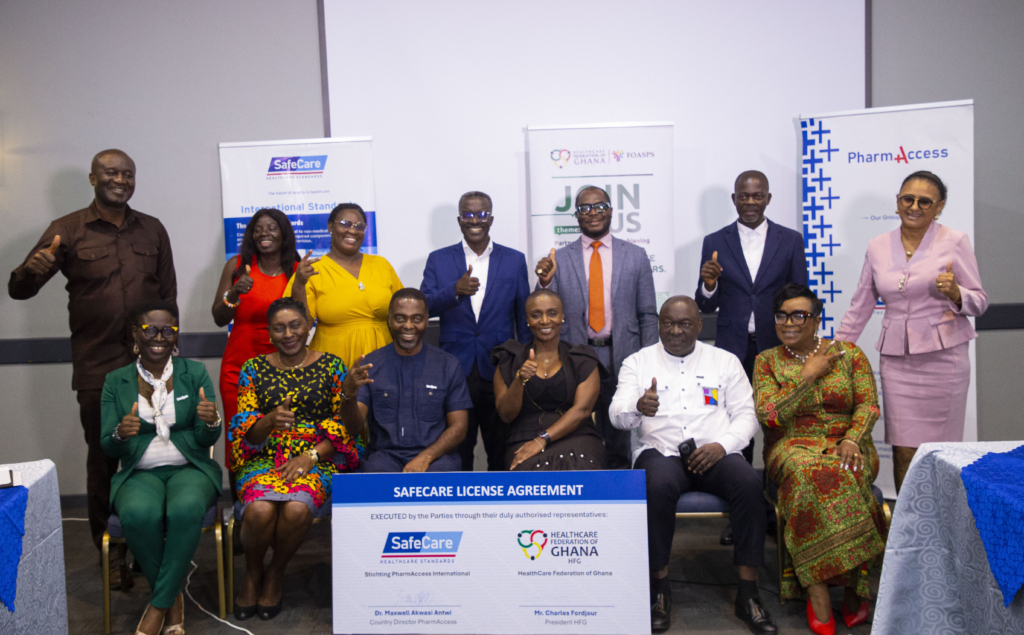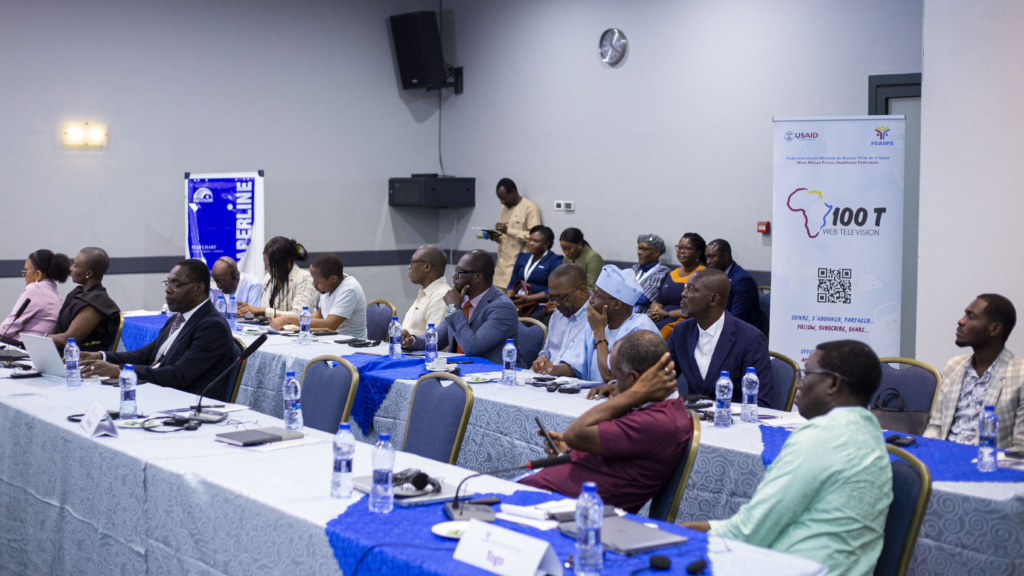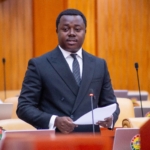
Ghana’s private health sector is embracing SafeCare accreditation as a strategic shift to raise healthcare standards and position the country as a competitive hub for medical tourism in West Africa.
The initiative, led by the Healthcare Federation of Ghana (HFG), seeks to embed globally recognised quality benchmarks across private facilities nationwide.
With over 70% of all health facilities in Ghana operating under the private sector and more than 60% of citizens relying on them, the rollout of SafeCare Version 5, recently accredited by the International Society for Quality in Healthcare (ISQua), is expected to significantly improve both patient trust and service delivery.

Speaking at the signing ceremony of the SafeCare Licensing Agreement in Accra, President of the Healthcare Federation of Ghana (HFG), Charles Fordjour described the move as a turning point.
“Today is a very important day in the annals of what we aim to achieve for our country, Ghana. Healthcare is wealth, and healthcare is what will drive the economy. Whatever we must do to ensure that every Ghanaian has access to quality healthcare is what we are committed to pursuing,” he said.
Mr. Fordjour explained that the partnership with PharmAccess will enable HFG to train assessors and accredit its member facilities under the SafeCare model. This means that private clinics, hospitals, pharmacies and even medicine importers under the federation will now work toward meeting internationally benchmarked quality standards.

He added that, “So, as a Ghanaian, anywhere you go and see the SafeCare logo, it tells you that when you enter that facility and access healthcare, it is comparable to what you would get globally.”
Beyond improving domestic healthcare outcomes, the HFG President indicated that SafeCare is also a strategic tool to reverse the tide of outbound medical tourism, where Ghanaians with financial means travel abroad for treatment due to perceived quality gaps at home.

“We want to minimise outbound medical tourism and position Ghana as a destination for medical tourism. Most people with money, when they want to access healthcare, do not travel to another country to go to the public sector. They seek care in the private sector of that neighboring country,” the HFG president said.
He stressed that only quality-driven, verifiably accredited care will convince international patients and regional neighbours to see Ghana as a serious contender in healthcare delivery. To that end, the Federation sees SafeCare not just as a technical framework, but as a bold economic and health policy intervention.

“The way we can convince the whole world and the rest of West Africa and sub-Saharan Africa – that Ghana is a destination for medical tourism is through the quality accreditation we have. That is why we say this is a game changer for private healthcare in Ghana,” Mr. Fordjour said.
To support uptake, HFG also plans to work closely with private insurers, HR departments and other corporate players within the healthcare system to promote SafeCare-certified facilities as preferred providers. This, Federation noted, will help guarantee consistent and reliable healthcare experiences for workers and their families.

He further said that, “When your employee goes to a facility with SafeCare accreditation, you are guaranteed assured care. We promise you that together, Ghana will be a different place and by extension, West Africa will be a different place.”
With SafeCare Version 5 now in hand, Ghana’s private sector is signalling that the path to healthcare excellence begins with quality and that it is ready to lead that journey on the continent.
- President Commissions 36.5 Million Dollars Hospital In The Tain District
- You Will Not Go Free For Killing An Hard Working MP – Akufo-Addo To MP’s Killer
- I Will Lead You To Victory – Ato Forson Assures NDC Supporters
Visit Our Social Media for More




